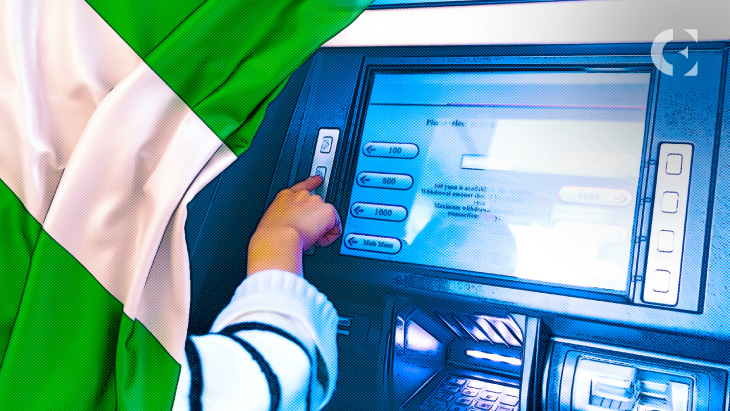- Nigerian central bank reduces ATM cash withdrawal limit to boost e-Naira.
- Withdrawal limit has been reduced from $337 to $45.
- Nigerian government is looking to tax cryptocurrencies.
With the goal of increasing transactions with its digital currency, the Central Bank of Nigeria (CBN) has restructured its ATM withdrawal restrictions. The CBN announced in a press release on Tuesday, December 6th, that individuals may withdraw no more than 20,000 Naira ($45) from ATMs in a single day, compared to the former daily cap of 150,000 Naira, or $337.
In addition, the weekly bank withdrawal restrictions for people are set at $225 (100,000 Naira), and for businesses, they are set at $1,125 (500,000 Naira), with a 5% fee for individuals and a 10% fee for enterprises for sums beyond the set limitations. The daily limit for cash withdrawals through point-of-sale terminals is similarly $45.
As such, Nigerians who withdraw $45 from an ATM and then try to withdraw cash from a bank within 24 hours will be charged a 5% service fee since the limits are cumulative.
“Customers should be encouraged to use alternative channels — Internet banking, mobile banking apps, USSD, cards, POS, eNaira to conduct their banking transactions,” the central bank noted in the press release.
The central bank claims that the new regulations, which go into effect on January 9th, would not only significantly reduce the usage of cash but will also encourage Nigerians to adopt the eNaira, the country’s newly created central bank digital currency (CBDC).
Since its inception, the eNaira has shown poor adoption rates, as reported by CoinEdition. With less than 0.5% of the population having utilized the eNaira, it has been difficult for the Central Bank of Nigeria to persuade its citizens to use the CBDC. The government had even offered a rebate of 5% to promote e-Naira use for motorized rickshaw owners.
Meanwhile, the Nigerian government is considering taxing cryptocurrencies as part of its proposed Finance Bill 2022. According to Nigeria’s finance minister, the proposed bill clarifies the taxes on cryptocurrencies and other digital assets in keeping with the government’s strategy of strengthening cross-border and international taxation of developing e-commerce with emerging markets.
Disclaimer: The information presented in this article is for informational and educational purposes only. The article does not constitute financial advice or advice of any kind. Coin Edition is not responsible for any losses incurred as a result of the utilization of content, products, or services mentioned. Readers are advised to exercise caution before taking any action related to the company.










